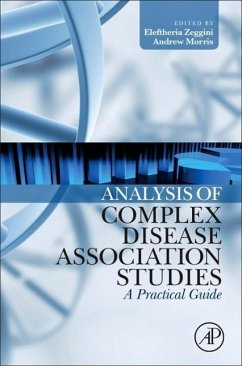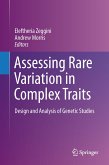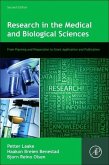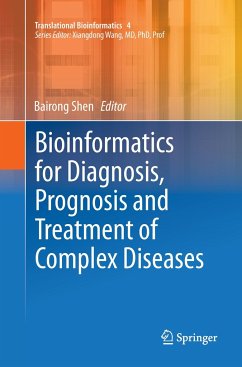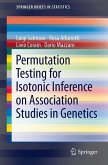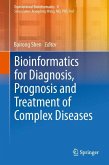Genetics and genomic studies are changing the practice of medicine and public health and playing central roles in all biomedical sciences. This book provides researchers with advanced biological knowledge who are entering the field of genome-wide association studies with the groundwork to apply statistical analysis tools appropriately and effectively. With the use of consistent examples throughout the work, chapters provide readers with best practice for getting started (design), analyzing, and interpreting data according to their research interests. Frequently used tests are highlighted and a critical analysis of the advantages and disadvantages, supplemented by case studies for each, provide readers with the information they need to make the right choice for their research. Additional tools including links to analysis tools, tutorials, and references will be available electronically to ensure the latest information is available.
According to the National Institute of Health, a genome-wide association study is defined as any study of genetic variation across the entire human genome that is designed to identify genetic associations with observable traits (such as blood pressure or weight), or the presence or absence of a disease or condition. Whole genome information, when combined with clinical and other phenotype data, offers the potential for increased understanding of basic biological processes affecting human health, improvement in the prediction of disease and patient care, and ultimately the realization of the promise of personalized medicine. In addition, rapid advances in understanding the patterns of human genetic variation and maturing high-throughput, cost-effective methods for genotyping are providing powerful research tools for identifying genetic variants that contribute to health and disease.
This burgeoning science merges the principles of statistics and genetics studies to make sense of the vast amounts of information available with the mapping of genomes. In order to make the most of the information available, statistical tools must be tailored and translated for the analytical issues which are original to large-scale association studies. Analysis of Complex Disease Association Studies will provide researchers with advanced biological knowledge who are entering the field of genome-wide association studies with the groundwork to apply statistical analysis tools appropriately and effectively. With the use of consistent examples throughout the work, chapters will provide readers with best practice for getting started (design), analyzing, and interpreting data according to their research interests. Frequently used tests will be highlighted and a critical analysis of the advantages and disadvantage complimented by case studies for each will provide readers with the information they need to make the right choice for their research. Additional tools including links to analysis tools, tutorials, and references will be available electronically to ensure the latest information is available.
Hinweis: Dieser Artikel kann nur an eine deutsche Lieferadresse ausgeliefert werden.
According to the National Institute of Health, a genome-wide association study is defined as any study of genetic variation across the entire human genome that is designed to identify genetic associations with observable traits (such as blood pressure or weight), or the presence or absence of a disease or condition. Whole genome information, when combined with clinical and other phenotype data, offers the potential for increased understanding of basic biological processes affecting human health, improvement in the prediction of disease and patient care, and ultimately the realization of the promise of personalized medicine. In addition, rapid advances in understanding the patterns of human genetic variation and maturing high-throughput, cost-effective methods for genotyping are providing powerful research tools for identifying genetic variants that contribute to health and disease.
This burgeoning science merges the principles of statistics and genetics studies to make sense of the vast amounts of information available with the mapping of genomes. In order to make the most of the information available, statistical tools must be tailored and translated for the analytical issues which are original to large-scale association studies. Analysis of Complex Disease Association Studies will provide researchers with advanced biological knowledge who are entering the field of genome-wide association studies with the groundwork to apply statistical analysis tools appropriately and effectively. With the use of consistent examples throughout the work, chapters will provide readers with best practice for getting started (design), analyzing, and interpreting data according to their research interests. Frequently used tests will be highlighted and a critical analysis of the advantages and disadvantage complimented by case studies for each will provide readers with the information they need to make the right choice for their research. Additional tools including links to analysis tools, tutorials, and references will be available electronically to ensure the latest information is available.
Hinweis: Dieser Artikel kann nur an eine deutsche Lieferadresse ausgeliefert werden.

